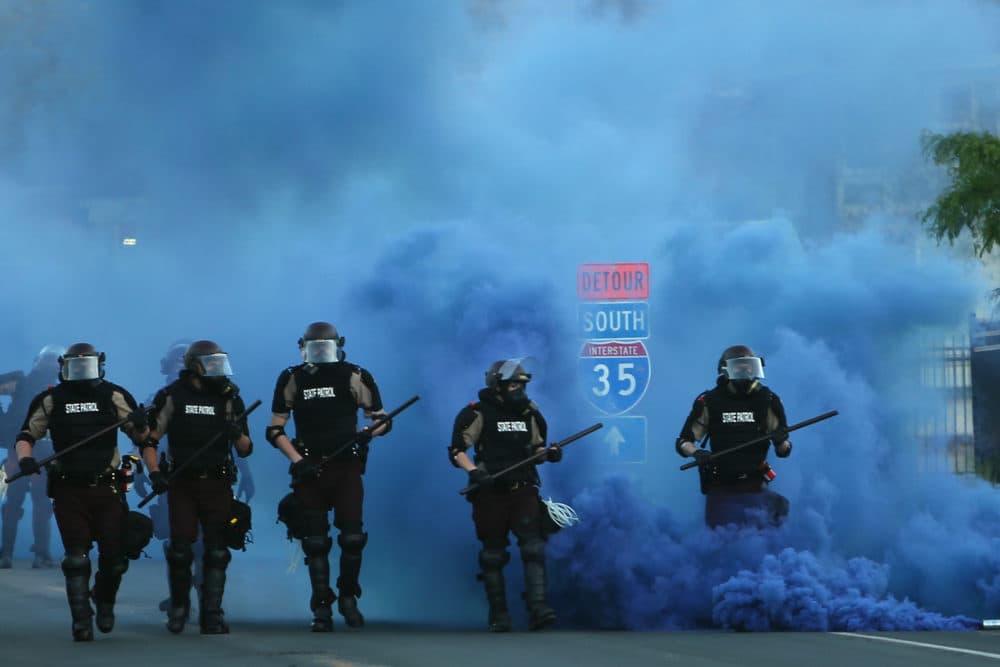Advertisement
Commentary
Trump Is Nearly Gone. But We Cannot Stop Our Fight For Civil Rights

With the end of the Trump administration before us, and the likelihood of an effective COVID-19 vaccine coming soon, many are breathing a sigh of relief that the country is returning to “normal.” After this tumultuous year, the sentiment is understandable. But we need to take the opposite approach when it comes to civil rights.
If anything, recent events have demonstrated how deeply unequal our society remains. In Massachusetts and across the country, the pandemic has hit communities of color the hardest, both in health and economic terms, exposing once again the profound inequities that have long plagued our country.
At the same time, the Black Lives Matter movement has focused attention on the disproportionate harms experienced by Black men and women at the hands of law enforcement.
It is therefore critical that we use this inflection point in our nation’s history to move forward: towards a vision of the future that doesn’t revert to the status quo, but rather seeks to fundamentally reshape our country by prioritizing equality as a value throughout civic life.
A few key examples illustrate why now is not the time to be complacent.
Policing. For communities of color that have disproportionately borne the brunt of police misconduct for years, “back to normal” is a prescription for continued pain and suffering.
The officers who killed George Floyd in Minneapolis, Breonna Taylor in Louisville and Terrence Coleman in Boston were all hired and trained by their local municipalities.
While a Biden-Harris administration can reasonably be expected to improve leadership at the federal level — particularly through a reinvigorated Department of Justice -- police reform is needed most at the local and state levels.
The officers who killed George Floyd in Minneapolis, Breonna Taylor in Louisville and Terrence Coleman in Boston were all hired and trained by their local municipalities. Every year, city councils across the country decide how law enforcement should be funded and whether reforms should be enacted, no matter who occupies the White House.
In the weeks and months ahead, it is in city halls and statehouses and district courts where we need to fundamentally re-envision what it means for law enforcement to “serve and protect” all of our communities equally. In Boston and other cities, that means demanding police transparency and diversity, and insisting on justice for victims of police violence; on Beacon Hill, that means enacting meaningful police reform legislation, which continues to languish months after introduction.
Advertisement
Voting. As this month’s historic election demonstrated, the electoral process also plays out first and foremost at the local and state levels. And too often our elections are characterized by obstacles and barriers, particularly for communities of color.
Whatever the temptation may be to want to go 'back to normal,' there is no room for complacency now.
If November’s election unfolded relatively smoothly, that was due in no small part to the Herculean efforts of voting rights advocates who advised people for months to “make a plan to vote” — as if Election Day were an impending natural disaster that required emergency preparations. Why not flip the script and make voting easier and more equitable instead?
Even in supposedly progressive Massachusetts, advocates have had to sue in the Supreme Judicial Court to make sure vote-by-mail is implemented correctly. We are still pushing in the legislature for simple reforms like same-day registration. And I haven’t even mentioned the more structural issues: from unfair local electoral systems that dilute the vote of communities of color, to a skewed redistricting process that is more focused on keeping existing power structures in place than on empowering our rapidly-diversifying communities.
These are all critically important fights that need to be waged at the local and state levels no matter who the president is.
Immigration. There can be no doubt that the Trump administration wrought tremendous damage on immigrant communities over the last four years — and that part of the task ahead for those who value civil rights will simply be to repair that damage.
Here in Massachusetts, we successfully held the line on some of the worst abuses, such as the Trump administration’s attempt to deport critically-ill children, and we are now hopeful that life-saving humanitarian programs like DACA and Temporary Protected Status -- threatened with termination under President Trump – will be maintained instead. But reversing the damage done won’t be enough.
It’s worth recalling that President Obama was sometimes called the "Deporter-in-Chief" for the aggressive immigration enforcement policies his administration undertook. We don’t need that kind of “back to normal.” We need to fight for a fundamental re-thinking of our immigration priorities: one that recognizes the extraordinary contributions immigrants make to the fabric of this country, creates pathways to citizenship and emphasizes keeping families and communities together.
Whatever the temptation may be to want to go “back to normal,” there is no room for complacency now. We must instead seize this moment in our nation’s history to re-double our work towards creating a forward-looking vision of equality at all levels of government.
